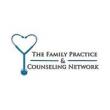
Black people are three times more likely than white people to die from complications related to childbirth in the U.S. In Philadelphia, Black people represent 73% of pregnancy-related deaths, but only 43% of births, according to a 2018 report from the Philadelphia Maternal Mortality Review Committee.
Numerous efforts in recent years have attempted to curb the disproportionate risks Black people face when it comes to childbirth. One such effort is by Family Practice and Counseling Network, an integrated health services provider that offers primary care, dental care, and behavioral health services.
The organization is set to break ground on a new birthing center at 61st Street and Woodland Avenue in Southwest Philadelphia, the same location as one of FPCN’s current facilities, The Health Annex. The center will provide a nurse-focused care model, with midwives, doulas, lactation consultants, and holistic options for care during pregnancy, childbirth, and postpartum services.
“That fourth trimester, the season right after giving birth, is the most critical period for a woman or birthing parent after delivery,” said LaQuesha C. Garland, director of development and social innovations at FPCN. “We’ll be able to provide things such as behavioral health support, social worker supports to speak to some post-traumatic issues that may be going on in addition to prenatal care.”
Garland notes that many Black people experience serious complications post-pregnancy at a time when most energy is focused on the baby. She says the Women and Health Birthing Center will shift some of the focus back to the person giving birth to ensure they comes out of the pregnancy healthy and able to care for their child.
“We want to feature transitional care nurses that will follow birthing families and children throughout the course of the first five years of their lives,” said Garland.
Southwest Philadelphia is one of the most underserved sections of the city, with a sizable population of Black residents and African and Caribbean immigrants, many of whom have distrust of the health care system.
“Racism is a problem within the system,” said Garland, “and Black women are twice as likely to have a traumatic birthing experience as our white women counterpart.”
Garland says her own childbirth experience was traumatic, enduring an emergency C-section and a blood transfusion. Without support, she says she would not have been able to heal and care for her newborn son.
“Thank God I had my village with me,” said Garland. “But what about the sister that doesn’t? That’s why we talk about this fourth trimester and providing support.”
FCPN has partnered with Maternity Care Coalition and the Oshun Family Center to help tackle the issue of Black maternal mortality.
“This is not just ours,” said Garland. “This is all of ours — it takes a village.”






